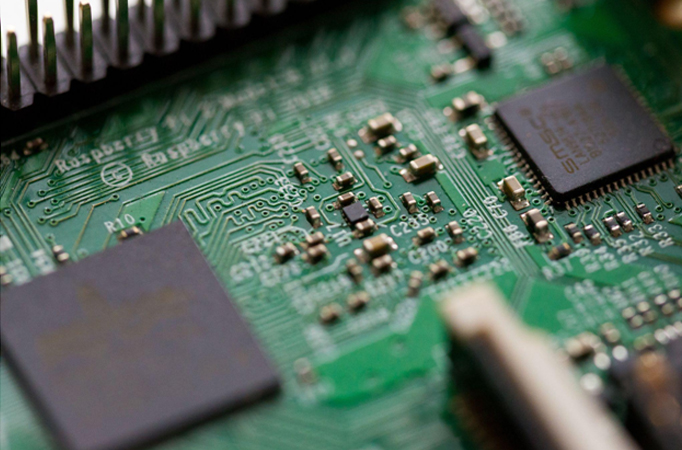MUMBAI: In an era characterized by rapid technological advancement, businesses are facing unprecedented challenges in maintaining IT infrastructure that can keep up with the pace of change. The key to survival and success in this landscape lies in future-proofing IT infrastructure. Future-proofing refers to designing and implementing systems, processes, and technologies that can adapt and thrive in the face of evolving technological trends like an online casino or an eCommerce platform.
The Need for Future-Proofing
The technology landscape is in a constant state of flux. Innovations such as artificial intelligence (AI), quantum computing, the Internet of Things (IoT), and 5G are reshaping the way businesses operate. Without a proactive approach to future-proofing, organizations risk falling behind and becoming obsolete. The cost of not adapting can be substantial, ranging from loss of competitive advantage to operational inefficiencies and security vulnerabilities.
Embrace Scalability and Flexibility
One of the core principles of future-proofing IT infrastructure is scalability. Organizations must design their systems to easily accommodate increased workloads, data volumes, and processing requirements. Cloud computing has emerged as a powerful tool in this regard, allowing businesses to scale up or down based on demand. By leveraging cloud services, businesses can avoid costly over-provisioning of hardware while ensuring their systems can handle spikes in activity.
Flexibility is equally crucial. IT infrastructure should be modular and adaptable, allowing for the integration of new technologies without requiring a complete overhaul. Microservices architecture, where applications are built as a collection of smaller, independent services, enables businesses to update specific components without disrupting the entire system. This agility is vital in a rapidly evolving tech landscape.
Invest in Robust Security Measures
As technology advances, so do the threats to cybersecurity. Future-proofing IT infrastructure involves implementing robust security measures that can withstand increasingly sophisticated attacks. This includes adopting a multi-layered approach to security, incorporating elements such as encryption, intrusion detection systems, and regular security audits.
AI and machine learning can play a pivotal role in future-proofing security. These technologies can identify patterns and anomalies in data, helping to detect and mitigate potential breaches before they escalate. Investing in a strong cybersecurity framework ensures that businesses can confidently adopt new technologies without compromising their data integrity.
Leverage Automation and AI
Automation and AI technologies are transforming industries by streamlining processes and enhancing efficiency. By incorporating these technologies into IT infrastructure, businesses can future-proof their operations. Routine tasks such as software updates, maintenance, and monitoring can be automated, freeing up IT teams to focus on strategic initiatives.
Machine learning algorithms can also predict potential issues and suggest proactive solutions, minimizing downtime and optimizing system performance. This predictive maintenance approach is a cornerstone of future-proofing, as it prevents disruptions and extends the lifespan of IT infrastructure.
Continuous Learning and Skill Development
In a rapidly evolving technological landscape, the skills that are relevant today might become obsolete tomorrow. Future-proofing IT infrastructure requires a commitment to continuous learning and skill development. IT teams must stay up-to-date with the latest trends, tools, and technologies to make informed decisions about system upgrades and implementations.
Employers can facilitate this by providing training opportunities, attending conferences, and encouraging certifications. Furthermore, creating a culture of curiosity and innovation within the IT department encourages team members to explore emerging technologies and experiment with new solutions, ultimately contributing to the future-proofing process.
Embrace Interoperability
Interoperability is the ability of different systems and technologies to work seamlessly together. Future-proofing IT infrastructure involves selecting solutions that promote interoperability. This allows organizations to integrate new technologies with their existing systems, preventing the creation of siloed environments that hinder growth.
Application Programming Interfaces (APIs) play a critical role in achieving interoperability. By utilizing well-documented APIs, businesses can ensure that their systems can communicate and share data with other applications, both current and future. This adaptability is essential for incorporating emerging technologies into the existing IT ecosystem.
Collaborate and Stay Agile
Future-proofing IT infrastructure is not a solo endeavor. Collaboration with industry peers, technology partners, and experts is essential for gaining insights into emerging trends and best practices. By staying connected to a network of professionals, businesses can anticipate shifts in the technology landscape and prepare accordingly.
Agility is another key aspect of future-proofing. Organizations should adopt an agile mindset, enabling them to pivot quickly in response to new developments. Agile methodologies, commonly used in software development, can also be applied to infrastructure management, allowing for iterative improvements and adjustments in real-time.
Incorporating Blockchain for Data Integrity
Blockchain technology, renowned for its secure and tamper-resistant nature, holds great potential in future-proofing IT infrastructure. Blockchain is a decentralized and distributed digital ledger that records transactions across multiple computers, ensuring transparency and immutability.
By incorporating blockchain into IT infrastructure, businesses can enhance data integrity, prevent unauthorized access, and establish a trust-based environment for their stakeholders. This is particularly relevant in industries such as finance, supply chain, and healthcare, where the accuracy and security of data are of utmost importance. As blockchain technology matures, its integration into IT infrastructure will play a vital role in future-proofing against data breaches and fraudulent activities.
Ethical Considerations and Human-Centered Design
While the focus of future-proofing often revolves around technological aspects, it's crucial not to overlook the human element. Ethical considerations and human-centered design principles should be integral components of IT infrastructure future-proofing strategies. As technologies like AI, automation, and data analytics become more prevalent, ethical dilemmas regarding privacy, bias, and job displacement arise.
Disclaimer: This article is a paid publication and does not have journalistic/ editorial involvement of tellychakkar.com. indiantelevision.com group or its websites does not endorse/ subscribe to the contents of the article/advertisement and/or views expressed herein.
The reader is further advised that Online Casino, Crypto products and NFTs are unregulated and can be highly risky. There may be no regulatory recourse for any loss from such transactions.
Indiantelevision.com group shall not in any manner, be responsible and/or liable in any manner whatsoever for all that is stated in the article and/or also with regard to the views, opinions, announcements, declarations, affirmations etc., stated/featured in same. The decision to read hereinafter is purely a matter of choice and shall be construed as an express undertaking/guarantee in favour of tellychakkar.com (indiantelevision.com group) of being absolved from any/ all potential legal action, or enforceable claims. The content may be for information and awareness purposes and does not constitute financial advice.











